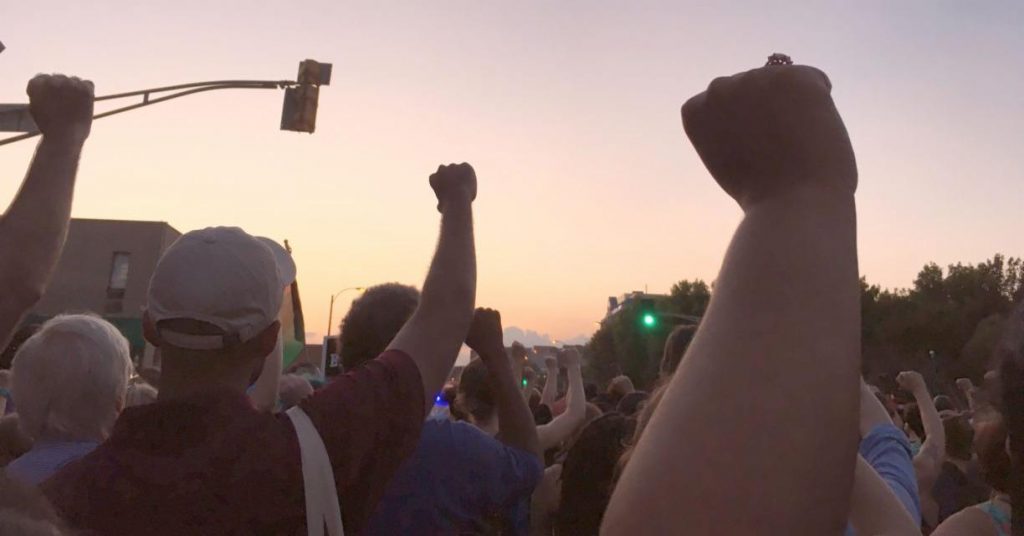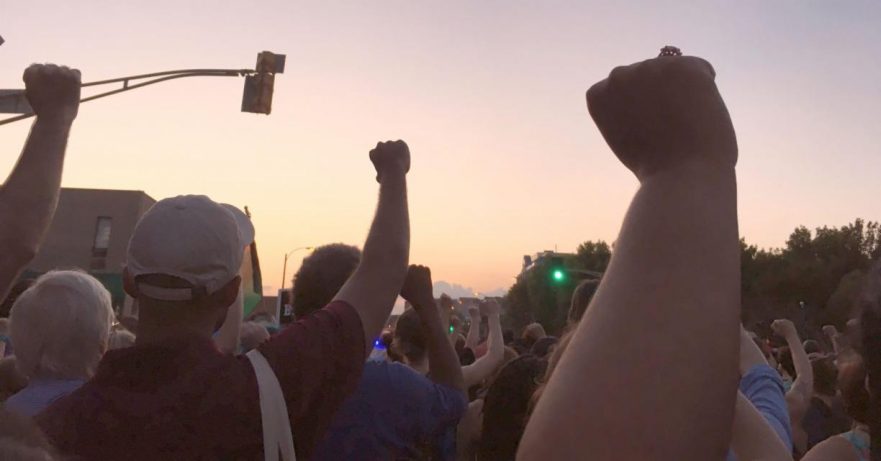
Since 1920, The Scholarship Foundation of St. Louis has been built upon the enduring belief that an educated society is essential to a healthy democracy. Equitable education and civil society cannot coexist with racism.
______________
We are not mincing words. After the latest public acts in 400 years of state sanctioned violence against Black people, we are way past the point of making statements or suddenly tweeting trending hashtags. Confronted with undeniable, institutionalized, raging racism in the murders of George Floyd, Breonna Taylor, and Ahmaud Arbery, we are compelled to act.
This week, our Executive Committee engaged in a spirited and honest discussion about the “position” of The Scholarship Foundation of St. Louis. We did not have to debate or qualify the declarative statement “Black Lives Matter.” No symbolic changes were discussed. We resisted the competition for who had attended the most protests or argued most eloquently on behalf of human rights.
Instead, we decided to prepare an inventory and to hold ourselves accountable. We found that we have:
MANY YEARS
- 100 years, and counting, of standing for and doing what’s right, because it’s right.
- 72 years of funding Black students (6 years before Brown v Board).
- 60 years of Black women serving on the board (30 years before white men were invited).
- 6 years, since the murder of Michael Brown, Jr., of supporting the regional movements demanding change in the ways we support Black youth.
A DEFINED LANE
- Belief that higher education is essential to democracy and civil society.
- Advocating alongside and serving students with financial need.
- Speaking out on inequities and disparities resulting from racist systems.
- Vigilance and transparency at the intersection of higher education, economy, democracy, and race.
STACKS OF RECEIPTS
- 42% of students funded annually identify as Black.
- 54% of all grant dollars are awarded annually to Black students (more than $1 million).
- 47% of the staff identify as Black, including 2 of 5 directors.
- 32% of the board identifies as Black, including 4 of 8 executive committee members.
- 3 of 5 board committees are chaired by Black women.
At 100 years and counting, we are not satisfied. Like many institutions, we struggle with the temptation to celebrate the “outlier”, to see our work as individual charity instead of acts of resistance to systems designed to perpetuate inequity. We all have biases and fears we think we can ignore. We recognize the suffering amongst us (students, community, staff, board) from a history of lynching and other unspeakable and less visible violence visited upon Black people. We are traumatized each time we are asked to watch, and each time we work to prove injustice and yet see no accountability. We are guilty of thinking good data and defensible policy proposals will suffice. And yet, to end white supremacy and systemic racism, we are compelled to get over the fear of alienating our many white friends by telling the truth and demanding different action. We are not satisfied and we are not done.
– Faith Sandler


